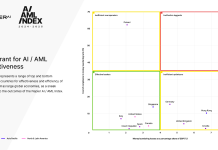The Financial Conduct Authority (FCA) has imposed a fine of £178,000 to an international sham trading scheme known as cum-ex.
The FCA fined Sapien Capital Ltd for serious financial crime control failings between 10 February and 10 November 2015, leading to the risk of facilitating fraudulent trading and money laundering concerning business introduced by the Solo Group. The fine was reduced from £219,100 due to serious financial hardship.
Sapien Capital, which executed more than £6bn of trades in Danish and Belgian stocks on behalf of hedge-fund manager Sanjay Shah’s Solo Capital had inadequate financial-crime controls in place. The trading “is highly suggestive of sophisticated financial crime,” the watchdog said.
“This is the first FCA case in relation to cum/ex trading, dividend arbitrage and withholding tax reclaim schemes. There are currently a number of ongoing and overlapping investigations,” the FCA added.
Commenting on the financial crime committed by Sapien, FCA director of enforcement and market oversight Mark Steward said, “These transactions ran money-laundering and other financial crime risks, which Sapien incompetently failed to see.”
Latin for with-without, cum-ex refers to the stocks with and without their dividends. Cum-ex trading involves using a now-closed legal loophole to claim tax credits for both buyers and sellers of shares by buying shares just before their dividends expired and then selling them on straight away.
In simple words, it entails the use of Over the Counter (OTC) equity trading, securities lending and forward transactions on or just before the last cum-dividend date. This can then allow a party to claim a tax rebate on withholding tax, sometimes without entitlement.
Sapien executed purported OTC equity trades to the value of approximately £2.5bn in Danish equities and £3.8bn in Belgian equities. However, the FCA investigation found no evidence of change of ownership of the shares traded by the Solo clients, or custody of the shares and settlement of the trades by the Solo Group.
Steward added, “The FCA expects firms have systems and controls that test the purpose and legitimacy of transactions, reflecting scepticism and alertness to the risk of money laundering and financial crime and failures here constitute serious misconduct.”
As Sapien agreed to resolve all issues of fact and liability and entered a settlement agreement with the FCA, it qualified for a 30% discount. The firm told the FCA that “it is only with the benefit of hindsight that the shortcomings in relation to the Solo business have become apparent,” according to a summary of its submissions.
Copyright © 2018 RegTech Analyst






